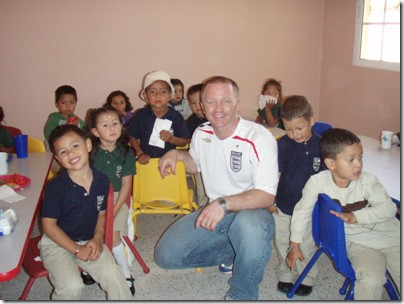From time to time, I will get an email from someone asking me for advice about running a children’s home or an orphanage. While I have a background in psychology and a definitive heart for orphans, I really can’t claim any expertise on best practice. I certainly have opinions, and there is a lot of research available that suggests some of the negative effects of institutional life. But in terms of finding the elusive handbook for doing it well? I don’t know that it’s out there. Do you? Am I missing it? If you know of any resources that detail best practice for orphanages, would you leave a link in the comments? I would love to hear about it. I know there are many books that outline the orphan crisis, the need, and ways people can help, and there seem to be many books that look at the theological call to care for orphans. But I’m talking about a research-based guide to day-to-day orphan care – a book looks at how children can best be nurtured into healthy adults in a group setting. I would love to read more about that.  My friend Phil Darke is currently undertaking research of this kind. He is working with a ministry called La Providencia. They are working in Honduras, providing family-based care for orphans there, but a part of Phil’s role is also to research and design a model for family-based orphan care that they can then share with others working in the same field. He wrote this post on his website recently and allowed me to share it here.
My friend Phil Darke is currently undertaking research of this kind. He is working with a ministry called La Providencia. They are working in Honduras, providing family-based care for orphans there, but a part of Phil’s role is also to research and design a model for family-based orphan care that they can then share with others working in the same field. He wrote this post on his website recently and allowed me to share it here.
Last Thursday, we visited an orphanage in San Pedro Sula from where four of our Providence Children came. The experience was even more eye-opening than I thought it would be and it confirmed that there is a huge need to improve orphan care in Honduras, which is what we are working on through the La Providencia model. The experience also confirmed to me that something is not always better than nothing, particularly when the "something" is terrible, yet gives the illusion that something positive is being done for the kids. Here are some snippets of the issues we saw:
- The bedrooms had holes in the ceiling because the kids were trying to “escape” (word used by the orphanage worker).
- The inside courtyard windows had bars on them because the kids were trying to get out.
- There were 143 kids in a 120 capacity place.
- The budget is $3,000/month, 80% of which goes to payroll; so they put $600/month to care for 143 kids. That is about $3.50/month per kid.
- The “nursery” had about 25 cribs in two small rooms with many cribs holding two children who were severely malnourished and lacking in love.
- There were also special needs children in the nursery. One awful situation had a 10 or 11 year old kid just sitting in a crib, Indian-style, staring into space.
Most of these kids aren’t living – they are simply there. It broke my heart, but also confirmed the importance of what God is doing at La Providencia to improve orphan care and change the paradigm of orphan care around the world. Hopefully we can together see the day when places like this orphanage cease to exist. I truly believe that the situation in San Pedro is not better than nothing because it gives the illusion to the world that something is being done to care for the orphans in Honduras — in reality, these kids are simply in a prison (surrounded by a two story high wall and guard tower) trying to escape. Most of these kids are not being cared for at all – this is not the fault of the loving and well-intentioned workers. It results from the lack of resources and a society that, on the whole, simply doesn’t care about orphans, treating them as sub-human, as trash. While they appear to have school, food, and "helpers," they are lacking almost everything they really need — families, touch, a real education. medical care, and real hope. They are kept from the world, behind the walls. It is tragic and hard to see. Especially when you contrast it with La Providencia and what loving orphan care can look like. And when you know that the only thing standing in the way of loving care like LP is money and a true belief that these kids are human beings, the same as all of us. Lord, help us to have wisdom and discernment to know how to develop La Providencia and share the model so that we together can improve orphan care. Then, we won’t have to see orphanages like the one in San Pedro Sula any longer. That is my prayer.
